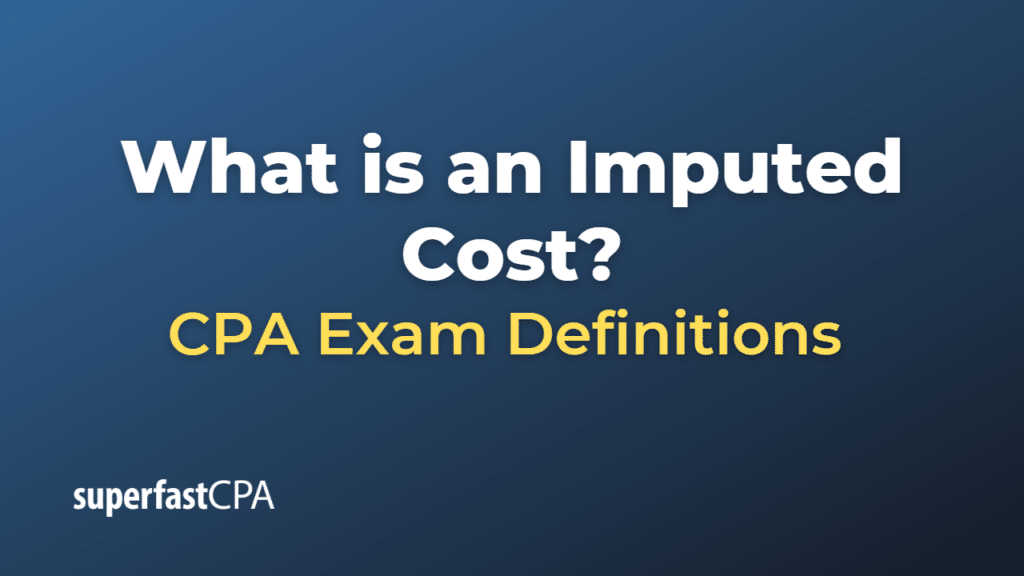Imputed Cost
An imputed cost refers to a cost that is not actually incurred but is given a value in decision-making calculations because it represents an economic cost. These costs are also called “notional costs”, “implicit costs”, or “opportunity costs”. They are not recorded in the regular accounting books but are considered when performing management accounting or making economic decisions.
Imputed costs represent the opportunity cost – the potential benefit an individual, investor, or business misses out on when choosing one alternative over another. They are costs that a business incurs when it allocates resources in a certain way, which results in a foregone opportunity to earn from these resources in a different way.
For example, if a person decides to run a business using their own building instead of renting it out, the rent foregone would be an imputed cost. Although no actual cash transaction occurs, this cost should be included in any economic profit calculation or decision-making process because it represents a lost opportunity to earn rental income.
Similarly, if an entrepreneur decides to invest his or her time in a start-up company, the salary that could have been earned elsewhere is an imputed cost to the business, even though no actual outlay of cash for salary occurs.
By considering imputed costs, managers and business owners can better understand the full impact of their decisions and calculate a more accurate picture of economic profitability.
Example of an Imputed Cost
Let’s take an example of a software engineer who decides to start his own tech startup.
- The engineer has been working in a tech company where he was earning $120,000 per year. However, he decides to quit his job and start his own business.
- In the first year of his startup, he does not take a salary but invests a lot of time and effort into developing his business.
- While his business’s accounting books might show that there are no labor costs (since he did not take a salary), there is an imputed cost involved. The imputed cost is the salary that the engineer gave up to start his own business – in this case, $120,000 per year.
- If the engineer were to calculate the economic profitability of his business, he should consider this imputed cost. For instance, if the business earned $100,000 in its first year, it might seem at first glance that the business made a profit. However, when considering the imputed cost of $120,000 (the engineer’s forgone salary), the business would actually have an economic loss of $20,000 ($100,000 earned minus $120,000 imputed cost).
- This understanding would help the engineer make better-informed decisions about whether to continue investing his time in the business or seek employment elsewhere.
So, the imputed cost in this scenario is the opportunity cost of the engineer’s time and potential salary. It’s not an actual expenditure by the business but is still a real cost to be considered in decision-making.













